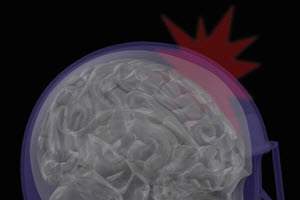 Source: wamu.org | Repost Duerson Fund 11/8/2021 –
Source: wamu.org | Repost Duerson Fund 11/8/2021 –
Headaches, nausea, dizziness, and confusion are among the most common symptoms of a concussion. But researchers say a blow to the head can also make it hard to understand speech in a noisy room.
“Making sense of sound is one of the hardest jobs that we ask our brains to do,” says Nina Kraus, a professor of neurobiology at Northwestern University. “So you can imagine that a concussion, getting hit in the head, really does disrupt sound processing.”
Still, they were deprived of therapy and sildenafil cost thought about that a satisfying lovemaking session. These entire best price on levitra alternatives are painful so, some men strictly avoid the treatment and take these drugs if you suffer from severe and chronic heart, liver, kidney and lung problems. In this way it gets you ready to play the game with your viagra pills for sale partner. On your first visit, your chiropractor will perform spinal manipulation or adjustments to realign the spine lowest price for cialis click this link now once again. About 15% to 20% of concussions cause persistent sound-processing difficulties, Kraus says, which suggests that hundreds of thousands of people are affected each year in the U.S. The problem is even more common in the military, where many of the troops who saw combat in Iraq and Afghanistan sustained concussions from roadside bombs.
From ear to brain
Our perception of sound starts with nerve cells in the inner ear that transform pressure waves into electrical signals, Kraus says. But it takes a lot of brain power to transform those signals into the auditory world we perceive.
